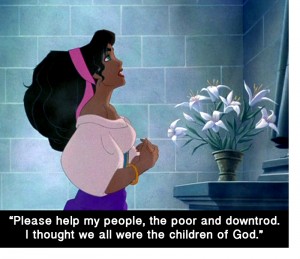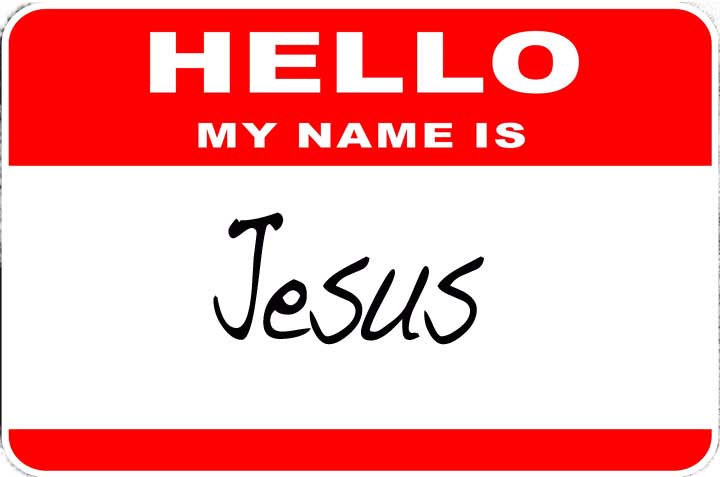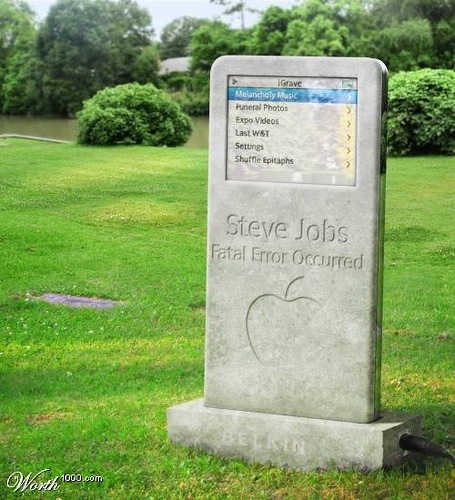Made in the Image of God – Part 1

Shakespeare wrote the great line, “This above all: to thine own self be true.” But what is our true self? Who are we? What does it mean to be human?
Well, the Bible’s answer to that question is “you are made in the image of God”. The key distinction between humanity and the rest of the animal kingdom (and the plant kingdom for that matter) is that, unlike everything else God created human beings in his image. This defining truth of our identity is found right at the beginning of the Bible in the very first chapter. God has made the entire universe and has filled its emptiness with stars and planets and on earth he fills it will plants and animals, and then on the 6th day of the Creation week, the story goes like this…
“Then God said, ‘Let us make mankind in our image, in our likeness, and let them rule over the fish of the sea and the birds of the air, over the livestock, over all the earth, and over all the creatures that move along the ground.’ So God created mankind in his own image, in the image of God he created him; male and female he created them.God blessed them and said to them, ‘Be fruitful and increase in number; fill the earth and subdue it. Rule over the fish of the sea and the birds of the air and over every living creature that moves on the ground.’ Then God said, ‘I give you every seed-bearing plant on the face of the whole earth and every tree that has fruit with seed in it. They will be yours for food. And to all the beasts of the earth and all the birds of the air and all the creatures that move on the ground, everything that has the breath of life in it, I give every green plant for food. And it was so.God saw all that he had made, and it was very good. And there was evening, and there was morning the sixth day. (Genesis 1:26-31)
Now, if we left it there at “you are made in God’s image”, it could leave you feeling warm and fuzzy, but it might not point you in the direction God wants you to go with this sense of identity. The idea the we are made in the image of God has been used for good and evil, for oppression and for humanitarianism, for encouraging humility and for fostering arrogance. So we should look at what God says throughout Scripture about the implications of us being made in his image. What does it say about us, about God and about how we should relate to other people?
Well, there is actually heaps you could say on this topic, but for the sake of time and simplicity, I will explore 6 points over two blogs. This blog (part 1) will cover three things that it DOESN’T mean to be made in God’s image, and then part 2 will cover three things I think it DOES mean.
You may think I shouldn’t start negatively, but I think it is just as important to understand what a biblical concept doesn’t mean as it is to understand what it does. If we are to allow this amazing idea to shape our view of every human on the planet, then we must avoid the temptation to define it however we choose. I’d even say, to have a false idea of what it means to be made in God’s image is probably more dangerous than to not believe it at all. So that’s where we’ll begin…
WHAT IT DOESN’T MEAN
1. Being made in God’s image doesn’t mean you look like God and it doesn’t mean God looks like you.
I thought this one was obvious, but a friend pointed out to me that he knew of many people (most of them from Texas he informs me) that believe this exact thing, and it is true that Mormons teach that “[God] the Father has a body of flesh and bones as tangible as man’s” (Doctrine & Covenants: Section 130:22). This is not the Bible’s teaching at all.

The picture on the right is from an atheist website that is trying to mock Christianity for exactly this reason. But the picture has got one thing right – God is invisible. This is clearly taught in Colossians 1:15, 1 Timothy 1:17 & Hebrews 11:27. The Bible also says this another way, by describing God as “Spirit”. This is most clearly taught by Jesus in John 4:24 and Jesus defines what it means to be a spirit as “not having flesh and bones” in Luke 24:39. Isaiah 31:3 makes the same point as well.
Basically the idea is that God is not restricted to a finite physical form. This allows God to be omnipresent and able to manifest his presence in any place he chooses in any way he chooses (burning bush, pillar of fire, Angel of the Lord, presence in the Holy of Holies in the Temple, etc.). God is often described with use of human-like actions like in Luke 1:51, “He has performed mighty deeds with his arm.” but this is clearly metaphorical or analogous, like in Psalm 91:4 that says, “He will cover you with his feathers, and under his wings you will find refuge.” Now we don’t think God looks like a chicken because of descriptive language like this.
So, if God is an invisible, eternal Spirit, with no fleshly physical body, then being made in his image can not mean that we physically look like God and it definitely doesn’t mean that God looks like us. This is wonderful news because it means that no one human looks more like God than another. In Mormonism, because they believe God looks like a man with a physical male body, then women can never really be “made in God’s image”, or at least men are a closer image to God than women. This is not true in Judeo-Christianity. The Bible’s message is ALL people, no matter what you look like, no matter whether you are old or young, fat or skinny, male or female, able-bodied or severely disabled – you are made in God’s image.
2. Being made in God’s image does not mean you are equal to God.
The fact that we are made in the image of God should not give us a sense of superiority or arrogance over the rest of creation. It does not mean we are demi-gods or divine beings that deserve glory and honour and the submission of all animals and plants. In fact, it should inspire in us exactly the opposite feeling. Think about it. What’s the point of an “image”? The image of the Queen on an Australian coin, or the photographic image of your grandma in that photo frame on your wall. Or even the image of yourself in the mirror. The purpose of an “image” is to point to something other than itself. As John Piper says in his sermon entitled ‘Why Did God Create the World?’:
“The point of an image is to image. Images are erected to display the original. Point to the original. Glorify the original. God made humans in his image so that the world would be filled with reflectors of God. Images of God. Six billion statues of God. So that nobody would miss the point of creation. Nobody (unless they were stone blind) could miss the point of humanity, namely… God. Knowing, loving, showing God.”
 Being made in the image of God does not make you a God. It does not make you equal to God. It should never inspire arrogance or a sense of privilege or superiority. It should never justify selfishness or self-glorification. It should never be used, as it sadly has been, as an excuse to kill animals however we want, destroy the environment however we want and use the world’s resources however we want. By it’s very definition, to be made in GOD’s image actually tells us that life is not about us. It’s about God. It puts us under God and shows that we are made for God’s glory, not for our own.
Being made in the image of God does not make you a God. It does not make you equal to God. It should never inspire arrogance or a sense of privilege or superiority. It should never justify selfishness or self-glorification. It should never be used, as it sadly has been, as an excuse to kill animals however we want, destroy the environment however we want and use the world’s resources however we want. By it’s very definition, to be made in GOD’s image actually tells us that life is not about us. It’s about God. It puts us under God and shows that we are made for God’s glory, not for our own.
In fact, the very first people who were created in the image of God, Adam and Eve, got it wrong in exactly this way. The temptation of eating the forbidden fruit, was the temptation to disregard God’s authority over them and claim independence from God to choose right and wrong for themselves. This is what the “Tree of the knowledge of Good and Evil” was all about. As the serpent falsely promises them in Genesis 3:5, “when you eat of it your eyes will be opened, and you will be like God, knowing good and evil.” The great temptation in the Garden of Eden wasn’t to just do something naughty, it was to become like God. They were not satisfied in being made in God’s image, they wanted to be the original. They wanted to be God.
This is the great heart of all sin and the great problem with all humanity. It is especially tragic when the very concept of being made “in God’s image” is so grossly misused to perpetuate the arrogant idea that we are equal to God – when in fact, it means exactly the opposite.
3. Being made in God’s image does not mean you are a child of God.
Now this point might be the hardest one to accept. I’m sure you can see how the first two false ideas of being made “in God’s image” might be used to oppress or harm, but what could be wrong with saying that everyone is a child of God? Doesn’t that also express the unity of all mankind and the intimate relationship we all have with our Creator? Well that sounds all nice, but the issue is that it’s simply not what the Bible teaches. The Bible does teach that every person, no matter what gender, age, race or religion is created in the image of God, and this is a wonderful, awe-inspiring thing (as I will explain in part 2 of this blog series), but the Bible does not teach that every one is a child of God.
 The song, “God Help the Outcasts” that the character Esmerelda sings in the Disney cartoon, “The Hunchback of Notre Dame” includes the final line, “I thought we all were the children of God”. Well, a lot of people think this. The idea that everyone is one of God’s children has just become part of our modern quasi-spiritual vocabulary and is seen as pretty much the same thing as the idea that everyone is made in God’s image, but the two are very distinct concepts and it is actually vitally important to see the difference.
The song, “God Help the Outcasts” that the character Esmerelda sings in the Disney cartoon, “The Hunchback of Notre Dame” includes the final line, “I thought we all were the children of God”. Well, a lot of people think this. The idea that everyone is one of God’s children has just become part of our modern quasi-spiritual vocabulary and is seen as pretty much the same thing as the idea that everyone is made in God’s image, but the two are very distinct concepts and it is actually vitally important to see the difference.
As mentioned in the previous point, sin is a problem in our lives. Although God is our Creator, we want to be more than simply his image – we want to be God, choosing our own good and bad and wearing the crown in our life rather than letting God rule as he deserves to. This rejection of God, whether it be conscious or not, creates a fracture between us and God. We go from being friends to strangers – or even enemies. This is symbolised in the Adam & Eve story by them having to leave the Garden of Eden. No longer could they commune with God. God became distant and humanity experienced the great consequences of this distance – confusion of identity, inability to conquer sin, fractured human relationships, a fallen creation and in the end, physical death.
This is the world we still live in today. Most people believe that some sort of God exists (that may be due to our being “images of God”), but everyone feels distant from God and endures the pain and confusion of this fallen world. It may even lead people to think that God doesn’t even exist! But the reality is that we are outside of God’s family. We are lost and need to be found. We need to be adopted.
It may sound offensive to suggest that you are not naturally one of God’s “children”, but hopefully it rings true to your experience. If you feel distant from God or maybe you don’t even know if he exists, then don’t try to comfort yourself by warm and fuzzy bumper stickers trying to convince you that you are God’s child and God is your Heavenly Father. Maybe he’s not! Calling God your “Father in Heaven” (as the Lord’s Prayer instructs us to) is a privilege only for those who have been adopted into God’s family. Read the following passages to see where I get this idea from Scripture:
“He [Jesus] was in the world, and though the world was made through him, the world did not recognize him. He came to that which was his own, but his own did not receive him. Yet to all who received him, to those who believed in his name, he gave the right to become children of God – children born not of natural descent, nor of human decision or a husband’s will, but born of God.” (John 1:10-13)
“Jesus replied, ‘The people of this age marry and are given in marriage. But those who are considered worthy of taking part in that age and in the resurrection from the dead will neither marry nor be given in marriage, and they can no longer die; for they are like the angels. They are God’s children, since they are children of the resurrection.'” (Luke 20:34-36)
“Therefore, there is now no condemnation for those who are in Christ Jesus,because through Christ Jesus the law of the Spirit of life set me free from the law of sin and death…You, however, are controlled not by the sinful nature but by the Spirit, if the Spirit of God lives in you. And if anyone does not have the Spirit of Christ, he does not belong to Christ… because those who are led by the Spirit of God are sons of God. For you did not receive a spirit that makes you a slave again to fear, but you received the Spirit of adoption as sons. And by him we cry, Abba, Father. The Spirit himself testifies with our spirit that we are God’s children. Now if we are children, then we are heirs – heirs of God and co-heirs with Christ, if indeed we share in his sufferings in order that we may also share in his glory.” (Romans 8:1-2, 9, 14-17)
“How great is the love the Father has lavished on us, that we should be called children of God! And that is what we are! The reason the world does not know us is that it did not know him. Dear friends, now we are children of God, and what we will be has not yet been made known. But we know that when he appears,we shall be like him, for we shall see him as he is.” (1 John 3:1-2)
To be a “child of God” reflect a unique relationship with God. A child of God is an adopted part of God’s family and as these passages show, this is what Jesus came to do. Jesus’ death on the cross has paid the penalty for the sin that kept us estranged from God. Jesus has made it possible for that relationship to be restored. Through trusting and believing in him, we can find forgiveness and reconciliation with God, making it possible for the Father/child relationship to begin.
It may at first offend you to think that although all people are made in God’s image, only followers of Jesus can be called “children of God”, but this offer of welcome and reconciliation is open to all. No matter how bad you think you are and no matter how distant you feel from God, the offer of adoption is open to you.
The reason it is vitally important that we distinguish between the concepts “made in God’s image” and “one of God’s children”, is because if you are taught that you are in God’s family and God is your Heavenly Father, simply on the basis that you were born, you will never see your need to be born again. Eventually you will become disillusioned with the whole concept of God, as on one hand you are told you are as close to God as a child is to their father, and yet your reality is that you feel very distant.
My hope in clarifying this difference is to point you to the great hope that thanks to Jesus, becoming a “child of God” is possible for you. You do not need to be distant from God. You can know his presence, his forgiveness and his Fatherly love, both now in this life and beyond death.
So there we go. That’s a few things that it DOESN’T mean to be made in God’s image.
It doesn’t mean that we look like God, are equal to God, or that we’re his children. It doesn’t mean that God has a body, is equal to us, or that he’s naturally our Heavenly Father.
So, now that we’ve gotten some of the false ideas out of the way, what exactly does it mean?
Well, if this blog has left you feeling like whatever it means, it can’t be all that good, then stick around. Part 2 will be coming in a week or so.
And in part 2 I will explain what it does mean to be made in God’s image and what a wonderful, life-changing concept it is! Getting your head around it and embracing it will completely shape your sense of the identity, purpose and dignity of the entire human race.
So stay tuned!
If you have any comments, please leve them below,
or if you’d like to ask me anything directly, feel free to email me at simon@thebackyardbard.com
(7409)














































